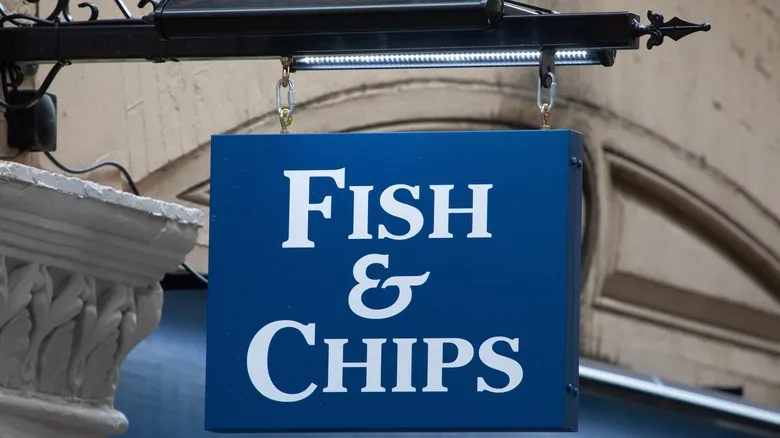Fish and chips first came together during the 1860s

While the combination of fish and chips wouldn't gain widespread popularity for many years, its origins can be traced back to the 15th century. Jewish settlers fleeing religious persecution from the Iberian Peninsula introduced the practice of frying cod and haddock in flour or matzo meal. This technique is believed to have been developed for preservation purposes, allowing the fish to be consumed the following day during the Friday Sabbath. Before long, these fried creations began to be sold as cooks refined their methods for battering fish. The use of flour and beer in the batter originated during this period and continues to be the standard today.
The introduction of chips to England is less clear, though it is thought to have come from across the English Channel. The origins of fries are hotly debated, with claims linking them to either France or Belgium. Some suggest that French Protestants brought the dish to England in the 17th century. However, potatoes had already made their way from the New World to British shores by the late 1500s.
The exact moment when fish and chips first came together is uncertain. Many attribute the opening of the first shop to Joseph Malin, a Jewish immigrant, in the early 1860s, while others believe the dish emerged in Northern England around the same time. By 1865, establishments serving fish and chips were documented, and their popularity only continued to rise. Tartar sauce was also created around this period, and mushy peas didn't become a common accompaniment until the 20th century, allowing the dish to evolve further.
The combo grew to peak popularity in the early 20th century

Initially, fish and chips shops were modest venues, often operated from home kitchens. However, as the industrial revolution gave way to urban life in the late 19th century, the dish began to serve larger crowds. Improved fishing techniques and more effective distribution networks brought fish to city centers more efficiently. The dish also evolved beyond street food, with restaurateurs introducing sit-down versions of fish and chips.
The popularity of street food peaked in the 1920s, with around 35,000 shops in the U.K.—approximately three times the current number. Remarkably, fish and chips establishments remained open during both World Wars, providing comfort food that was not subject to rationing. George Orwell even acknowledged the dish's widespread appeal in his writings.
As the 20th century progressed, fish and chips saw a decline in prominence, likely due to the rise of other affordable food options. The United Kingdom now boasts a diverse array of international street food, from dumplings to döner kebabs. Fast food chains, such as McDonald's with its Filet-O-Fish (which has a fascinating history of its own), also vie for attention in the same market. Nevertheless, fish and chips continue to be a beloved national dish, indicating that its crispy allure is unlikely to disappear completely.
Recommended

What Exactly Are Funeral Potatoes And What's With The Morbid Name?

How President Woodrow Wilson Put Chef Boyardee On The Map

Follow The Freckle Rule For Perfect Banana Splits

What Is Canned Brown Bread And How Do You Eat It?
Next up

